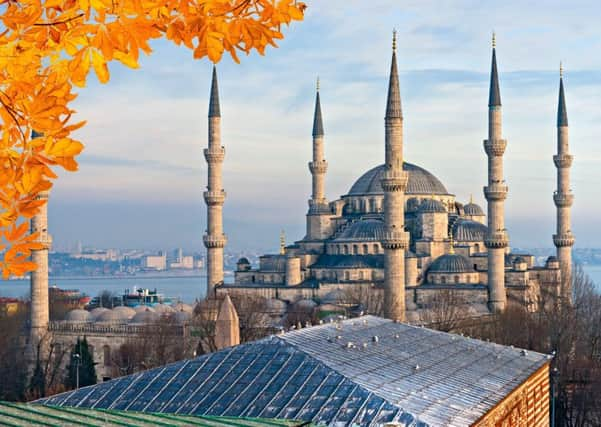Book review: The Sultan's Organ, by Jonathan Gaythorne-Hardy


It was decided to send him an organ – a remarkable one driven by clockwork, with no need of an organist or someone to blow the bellows. This would be something rare and strange, as well as beautiful and obviously expensive. There were no organs in the Muslim world, and in fact there were few now in England since the Protestant Reformers had destroyed so many. However, a young man, Thomas Dallam, who may have been a Roman Catholic, was commissioned to build the instrument, and Jonathan Gaythorne-Hardy tells the story of his voyage, which was full of interest and incident, and his reception in Constantinople. Happily Dallam kept a journal, which provides the author was much of his material; but his book is much more than an account of the voyage, fascinatingly though this is done. It took almost six months to get from the Thames to the Bosphorus. There were encounters with privateers, stopovers on Greek islands, and all the horrors of a confined life on a sailing ship (even 150 years later Dr Johnson thought that being on a ship was like being in jail, only worse.)
The likeable and resourceful Dallam and his extraordinary organ are consistently interesting, but, for many readers, it’s Gaythorne-Hardy’s depiction of the Ottoman Empire and the relationship between East and West that may be more compelling and, for some, surprising.
Advertisement
Hide AdThe Ottoman Empire was the richest and strongest power west of the Mughal Empire of India. It was a military empire and still an aggressive one. Constantinople had a population of almost three-quarters of a million, more than three times the size of London. It was rich, beautiful and highly civilized. Europeans were staggered by its splendours.
The Empire was an autocracy. The Sultan’s word was law; he had the absolute power of life and death. It was customary at the start of a reign for the Sultan to kill his brothers or, as most of them were, half-brothers, sons of different women of the harem. The author points out that English and French kings were just as efficient at removing cousins and nephews who might threaten the throne.
Like all Empires, the Ottoman one was multi-national, multi-cultural. Its subjects to the north and west of Constantinople were Europeans – Greeks and Slavs – who served in the army and the civil service. The Ottomans had a high regard for them, while they despised the backward Turks of Anatolia. Islam was the religion of the Empire – the Sultan now proclaimed as the Caliph – but Christians and Jews were tolerated – tolerated and taxed. It was better to be a Christian in the Ottoman Empire than a Roman Catholic in Elizabethan England or a Protestant in Hapsburg Spain. Since many of the women of the harem were Greeks or Slavs, Sultans might be more European than Turkish. Of course, Christians and Jews were what we might call second-class citizens, but most of the time they lived in harmony with their Muslim neighbours. Muslims in Constantinople might have been devout, but there was more religious toleration in the Islamic Empire than in Christian Europe. Many of the sizeable Jewish community had arrived in the Empire as refugees who had been expelled from Catholic Spain. It is one of the many merits of this book that it demonstrates that there are, and have been, as many varieties of Islam as of Christianity.
The author’s research has been thorough, but his learning is as lightly worn as his eye for detail or a telling anecdote is keen. He writes with an easy and agreeable elegance; in short, his book is a delight. A lesser writer would have made it two or three times as long.
*The Sultan’s Organ by Jonathan Gaythorne-Hardy, Propolis, 199pp, £19.99